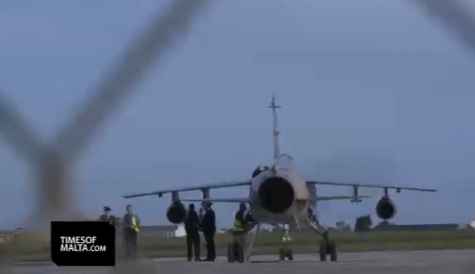A Franco-Polish commitment to the future PESDC
 (BRUXELLES2) The joint declaration just signed by French and Polish leaders in Paris on November 5 is worth dwelling on for five minutes. Without having the emphasis or the moment of the declaration of Saint-Malo, signed ten years ago between the French and the British, it certainly marks a stage. Could the next couple of European defense be Franco-Polish, as surely as the Franco-German driving force in economic matters?
(BRUXELLES2) The joint declaration just signed by French and Polish leaders in Paris on November 5 is worth dwelling on for five minutes. Without having the emphasis or the moment of the declaration of Saint-Malo, signed ten years ago between the French and the British, it certainly marks a stage. Could the next couple of European defense be Franco-Polish, as surely as the Franco-German driving force in economic matters?
political commitments
A profession of faith
The statement is first and foremost a profession of faith in Defense Europe: “ France and Poland have made a commitment to help Europe increase its defense capabilities. (...) A stronger European defense integrated into the CSDP (1) is also essential to strengthen NATO and the role of Europeans within the Alliance. (...) We consider CSDP and NATO to be complementary and mutually reinforcing. »
An embryo of permanent structured cooperation?
Moreover, it closely resembles the commitments required of participants in a permanent structured cooperation (even if the name is never mentioned). " We face similar challenges and we will overcome them together. We are committed to developing our military and civilian capabilities and to taking part in EU and NATO-led operations »
The solidarity clause reiterated
« Any threat to the fundamental security interests of one of our two countries will harm the interests of the other country. France and Poland are determined to unite their efforts to strengthen solidarity and mutual defense obligations in accordance with the Washington Treaty. We will also implement the security commitments we have made in the cframework of the Lisbon Treaty »
A Polish presidency in 2011 that's a bit French...too!
The declaration establishes continuity between the two presidencies. efforts continued in 2008 during the French presidency of the EU. " The French Presidency of the EU has undertaken to strengthen the ESDP. The Polish Presidency of the EU in 2011 will continue this process which will be further consolidated by the provisions of the Lisbon Treaty. France will support Poland's efforts to enable the EU and its Member States to fully assume their role in European, transatlantic and global security. »

A series of initiatives European, bilateral and Euro-Atlantic
The two partners list a series of initiatives that they plan to strengthen, both at European level and in the Atlantic Alliance or bilaterally.
At the European level, six points seem to be retained:
- The maritime: “ Use of military means to project a European maritime power to fight against trafficking, terrorism, proliferation, illegal immigration and piracy ».
- the revision of the financing of EU operations. " Strengthening financial solidarity between EU Member States to enable the deployment of larger contingents ».
- industrial cooperation: “ research together for new programs within the framework of the European Defense Agency and implementation of programs already developed (maritime mine clearance, surveillance drones, force protection and radio software) ". The French and Poles seem particularly interested in setting up three programs: “the European air transport fleet, the MUSIS satellite observation program, the availability of helicopters for operations led by the EU and NATO”.
- pooling : " With regard to equipment acquisitions, development of innovative solutions based on the sharing and pooling of resources ».
- acquisitions: “ joint acquisitions and specialization, particularly in terms of support operational ".
- the European HQ: “ le strengthening the EU's capacity to plan and conduct civil and military operations ».
Au bilateral level, in addition to the exchange of officers, the cooperation essentially revolves around three projects:
- one operational: “ strengthen cooperation between special forces, encouraging mutual access to our training programs »;
- the other two manufacturers: an industrial partnership bringing together the main players in air defense (the French MBDA, the Polish RADWAR, PIT and BUMAR) and a strategic industrial partnership between the French DCNS and the Polish shipyards SMW “ to modernize naval capabilities ". Furthermore, Poland takes note of the French plan to develop a European early warning system for the detection of missile launches.
At NATO level, the objectives are articulated between the modernization of the Atlantic Alliance — Transform NATO to make it more effective, less costly and better suited to collective defense and new security challenges” —; maintain its effectiveness “Preserving the Alliance's deterrence posture, including in its nuclear dimension”; and " NATO's open door policy » in particular vis-à-vis Russia by « pragmatic cooperation where our security interests converge ».
(1) The declaration uses the term Common Security and Defense Policy when referring to the Lisbon Treaty. But if I remember correctly (I checked in passing), the exact term is "Common security and defense policy" (NB: it is true that the Treaty of Lisbon - itself gets tangled up with the brushes having inverted twice the adjective!). It's not just a question of words, it's quite a political question. The EU has a common fisheries, transport, agricultural, asylum and immigration policy, it does not yet have a common defense policy. On the other hand, it has a common defense policy (to ensure defense in common - it is a little different.


